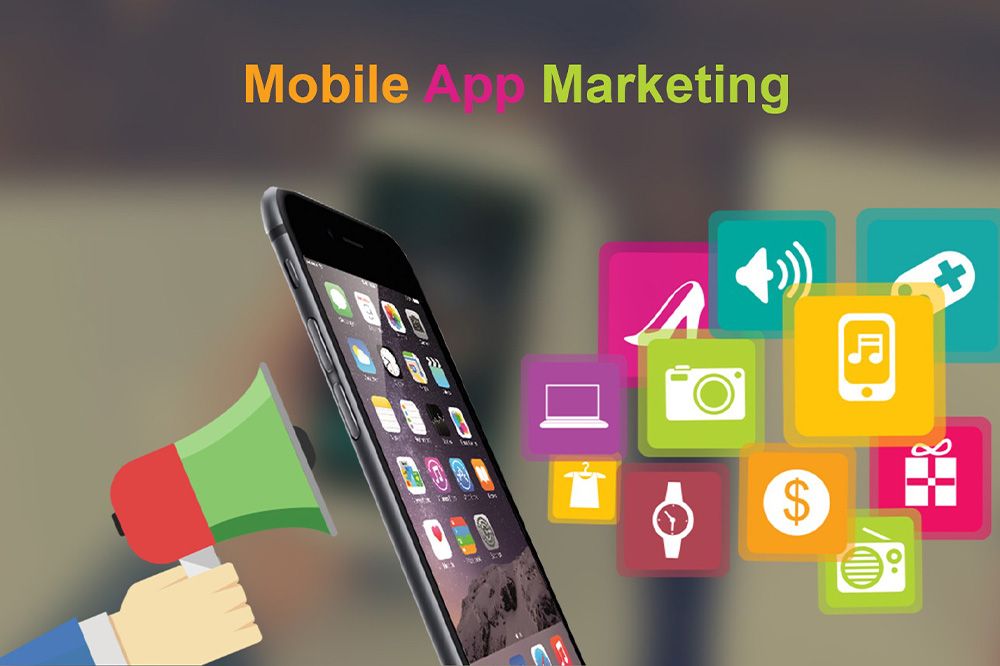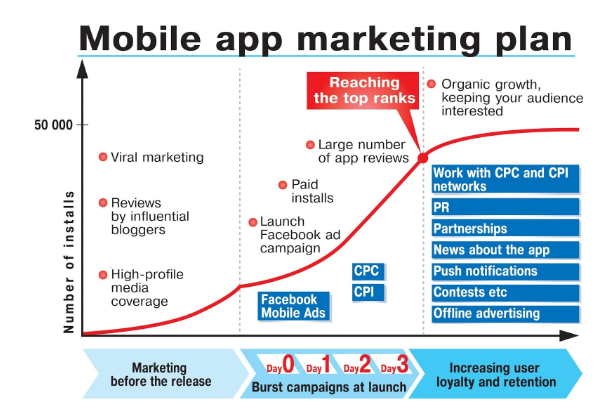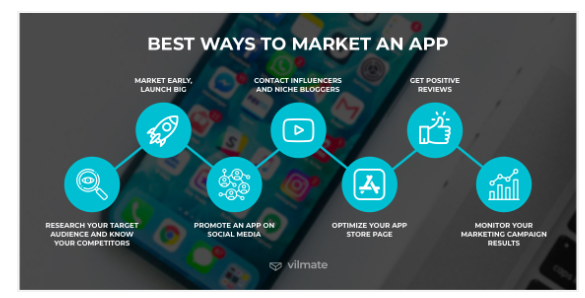Mobile App Marketing Strategy: An Ultimate Guide to Market an App Successfully

- Introduction to Mobile App Marketing
- Why You Need a Mobile App Marketing Strategy
- The 5 Pillars of a Successful Mobile App Marketing Strategy
- Types of Mobile App Marketing Strategies
- What Is an Ideal Practice for Developing an Effective Mobile App Marketing Strategy?
- What Next? Improve Your App Marketing Skills With the Emeritus.
As the number of mobile app users continues to grow, so does the competition among app developers. With over two million apps in the Apple App Store and two million in the Google Play Store, it’s getting harder and harder to get your app noticed.
But don’t despair – there are still a number of things you can do to market your app and make it a success. Therefore, in this blog post, we’ll give you the only mobile app marketing guide you will ever need, with actionable tips and advice to help you get your app in front of your target audience.
So if you’re ready to take your app to the next level, keep reading!
Introduction to Mobile App Marketing
Mobile app marketing is the process of promoting a mobile app to reach the maximum number of users. Moreover, it includes planning, execution, and optimization of marketing activities to drive app downloads and user engagement.
With the increasing number of smartphone users, the demand for mobile apps is also increasing. Consequently, the competition in the app store is becoming tougher. In such a scenario, simply developing a good app is not enough. You need to market your app effectively to make it visible among potential users and encourage them to download and use it.
Thus, mobile app marketing is essential to ensure the success of your app business. In this ultimate guide, we will discuss everything you need to know about mobile app marketing, right from its basics to advanced strategies. By the end of this guide, you will be equipped with all the knowledge and skills required to create and execute an effective mobile marketing strategy for your app.
Why You Need a Mobile App Marketing Strategy
So, before you can even think about launching your app, you need to create a comprehensive mobile app marketing strategy. The success of your app largely depends on how well you plan and execute your marketing efforts.
Your marketing strategy should clearly define your target audience, the messaging and visual assets you’ll use to promote your app, and the channels you’ll use to spread the word. You should also decide which metrics you’ll track to measure the success of your app.
A carefully thought-out strategy can help you focus your resources and optimize your budget for the best results. If done correctly, it will also help you discover opportunities for growth and help you identify potential pitfalls before they become a problem.

The 5 Pillars of a Successful Mobile App Marketing Strategy
Once you have created a clear strategy, you must break it down into distinct and achievable objectives. We refer to these objectives as the 5 Pillars of a Successful Mobile App Marketing Strategy: Brand Building, Acquisition, Engagement, Monetization, and Support & Maintenance.
- Brand Building includes activities to create visibility and increase brand awareness. This includes creating compelling visuals and content, running ads, and engaging in online conversations about your app and the industry.
- The acquisition is all about getting users to download your app. This pillar focuses on marketing tactics such as optimization, targeting, and conversion rate optimization.
- Engagement consists of activities designed to get users to use and interact with your app. This involves personalization and segmentation, user feedback analysis, and developing strategies to keep users interacting with your app.
- Monetization is the process of turning your free app into a money-making one. You can charge for your app, offer in-app purchases, or use other methods to monetize.
- Support & Maintenance is the final pillar and includes maintenance, bug fixes, and updating your app to keep users interested.
Types of Mobile App Marketing Strategies
There are many different types of mobile app marketing strategies that you can use to get your app in front of more users. So, some popular strategies include:
- App Store Optimization (ASO): This is the process of optimizing your app store listing to improve your app’s visibility and ranking in search results. This can be done by using keyword-rich titles and descriptions and creating attractive visuals like screenshots and videos.
- Search Engine Marketing (SEM): This type of marketing allows you to promote your app through paid ads on search engines like Google. SEM can be an effective way to reach potential users who are already searching for apps like yours.
- Social Media Marketing (SMM): You can use social media platforms like Facebook, Twitter, and Instagram to promote your app and engage with potential users. SMM can be used to generate word-of-mouth buzz, build brand awareness, and drive traffic to your app store listing.
- Display Advertising: This form of advertising allows you to place banner ads on websites and apps frequented by your target audience. Display ads can effectively raise your app’s awareness and drive downloads.
- In-App Advertising: You can also place ads inside other mobile apps that reach your target audience. In-app advertising can be a great way to reach users already using similar apps and may be interested in yours.
What Is an Ideal Practice for Developing an Effective Mobile App Marketing Strategy?
The process of developing a mobile app marketing strategy typically involves the following steps:
- Understanding your target audience: Define who your ideal user is, their demographics, needs, and pain points.
- Competitor analysis: Research and understand your competition, including their strengths, weaknesses, and unique selling points.
- Defining your unique value proposition: Identity what sets your app apart from others and makes it compelling to users.
- Setting objectives and KPIs: Determine what you want to achieve with your mobile app marketing and how you will measure success.
- Creating a marketing plan: Develop a comprehensive plan that outlines how you will reach and engage your target audience, including tactics such as app store optimization, paid advertising, influencer marketing, and more.
- Implementing and executing the plan: Launch your mobile app marketing campaign and continually monitor and adjust your efforts based on performance data and feedback.
- Measuring and analyzing results: Use analytics tools to track key metrics and measure the success of your marketing efforts. Use the insights you gain to refine and optimize your strategy.

It is important to note that mobile app marketing is ongoing and requires constant iteration and improvement based on performance data and market trends.
What Next? Improve Your App Marketing Skills With the Emeritus.
Mobile app marketing can be tricky, but with a well-thought-out strategy, you can create a successful campaign and get your app noticed by the right people. Therefore, our improved and updated digital marketing courses will help you take your skills to the next level if you want to build a successful app marketing campaign.








